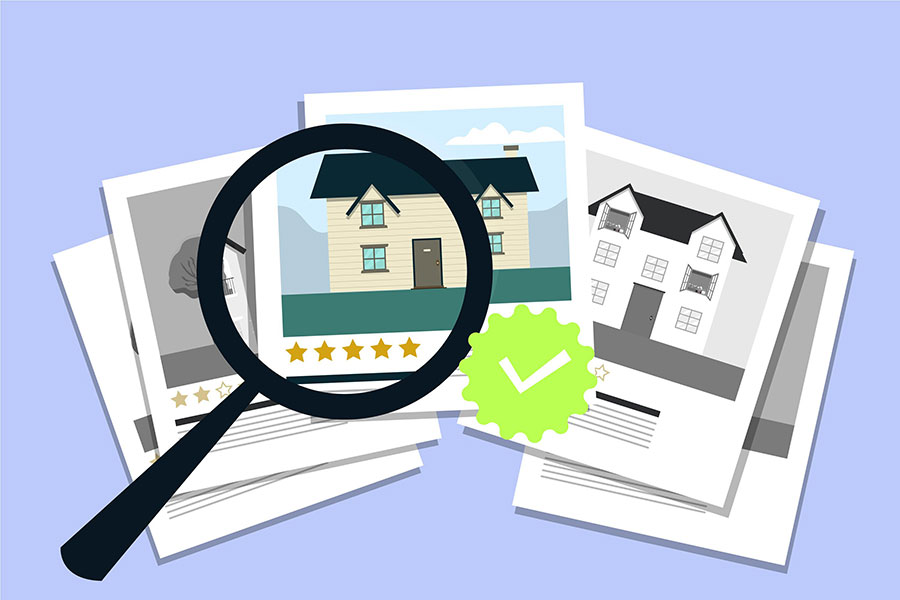What is a property assessment for a homeowner?
Updated Wed, Dec 4, 2024 - 6 min read
Top blog articles
When you decide to sell your home, it’s common to have its value assessed first. This evaluation helps decide how much property tax you’ll need to pay and also affects your selling price. Interestingly, even if you’re not selling, it’s important to understand what is a property assessment. There are many benefits to knowing what your real estate is worth.
What is a property assessment value?
The assessed value is like a price tag for your house that helps figure out how much property taxes you should pay. The value is arrived at by looking at how much similar houses are sold for, the total square footage of the property, what the housing market is like right now, the cost of homes in your neighborhood, and the findings of a home inspection. If you’re selling your house, this assessed value is the price most people agree on, and it’s a good way to know how much your house is worth.
How is property tax related to a property’s assessed value?

The assessed value of a house plays a crucial role in calculating property taxes. A tax assessor evaluates the property’s worth, and local tax authorities use this value to determine property taxes. If your home has a higher tax-assessed value, your property tax bill will be higher as well.
However, if a homeowner occupies their personal property, and holds its title, they can qualify for property tax exemptions through the homestead exemption.
How exactly is property tax calculated?
Your property tax bill depends on three main things: the assessed value of your property, any exemptions or tax relief you qualify for, and the property tax rate.
- The assessed value of your property is determined periodically, which can vary depending on where you live. It’s either based on the market value of your property or calculated by multiplying the market value by an assessment rate.
- Exemptions, such as a homestead exemption for owner-occupants, can reduce your assessed value without changing your property’s market value, lowering your tax bill.
- The property tax rate, expressed as a decimal, is multiplied by your property’s assessed value to calculate your tax bill. This rate covers various local services such as public schools, roads, parks, sanitation, libraries, and public safety measures.
Once assessors figure out your property’s assessed value, your tax bill can go up or down accordingly.
How to find out your property’s assessed value?
An assessor figures out how much a home is worth for tax purposes. They can do this by looking at the home’s market value, its appraised value, or a combination of both. Cities and counties hire assessors to do this job. To be fair and accurate, assessors often use a comparative market analysis (CMA) to help determine the assessed value.
Assessed value vs. market value: What is the difference?
Market value is the price your home could sell for right now in the current real estate market. While assessed value is the value assigned by government tax assessors to determine your property taxes. The bottom line is that both market value and assessed value play a role in determining your home’s overall value.
Assessed value vs. appraised value: What is the difference?
The appraised value of a home is like an expert’s opinion about how much it’s worth. It’s not the same as the assessed value used for taxes. When someone wants to buy a house with a mortgage, a professional appraiser checks the home’s value to make sure the buyer isn’t borrowing too much. They consider things such as the house’s condition, how big it is, real property features, what similar houses in the area cost, and if it’s a good time to buy or sell in the housing market.
And by the way, if you’re selling your house, you can make it worth more by making improvements such as getting better kitchen appliances or making the yard look nicer to attract buyers.
Read more: Why do appraisals come in at sales price?
Key takeaway
An assessor decides how much a home is worth for tax purposes. This is not the same as an appraised value, which can change a lot with the market.
- Your property tax amount is determined by your property’s assessed value, any eligible exemptions, and the property tax rate.
- An assessor looks at factors, such as your property’s size, type of construction, age, and location to determine your taxes
- The total tax payable also depends on the purpose of your property – whether it’s residential, agricultural, or commercial.
- If you don’t agree with your property tax bill, you can contact your local tax authority. And, formally request a reassessment.
FAQs

What is property tax assessment?
Property tax assessment is the process through which a government authority, often at the municipal or county level, determines the value of a property for taxation purposes.
What is a special assessment tax?
A special assessment tax is a type of additional tax imposed by local governments on property owners within a specific area or community to fund particular public projects such as improving roads, installing streetlights, building sidewalks, or upgrading sewer systems.
Can you appeal your property tax assessment?
Yes, you can appeal your property tax assessment if you disagree with your property assessment. Typically, the process involves filing an appeal with your local tax assessment office and providing evidence to support your case. It could be recent property appraisals, comparable home sales data, or documentation of any errors in the assessment. Keep in mind that the guidelines for filing an appeal may vary depending on where you live. A successful appeal can lead to a reduction in your property tax bill, so it’s a process worth exploring.
How do property tax assessments work?
Property taxes change based on the assessed value of your home, where your property is located, etc. You usually pay them once a year. Your property tax bill can be affected by things such as how much your home is worth and the local property tax rate.









